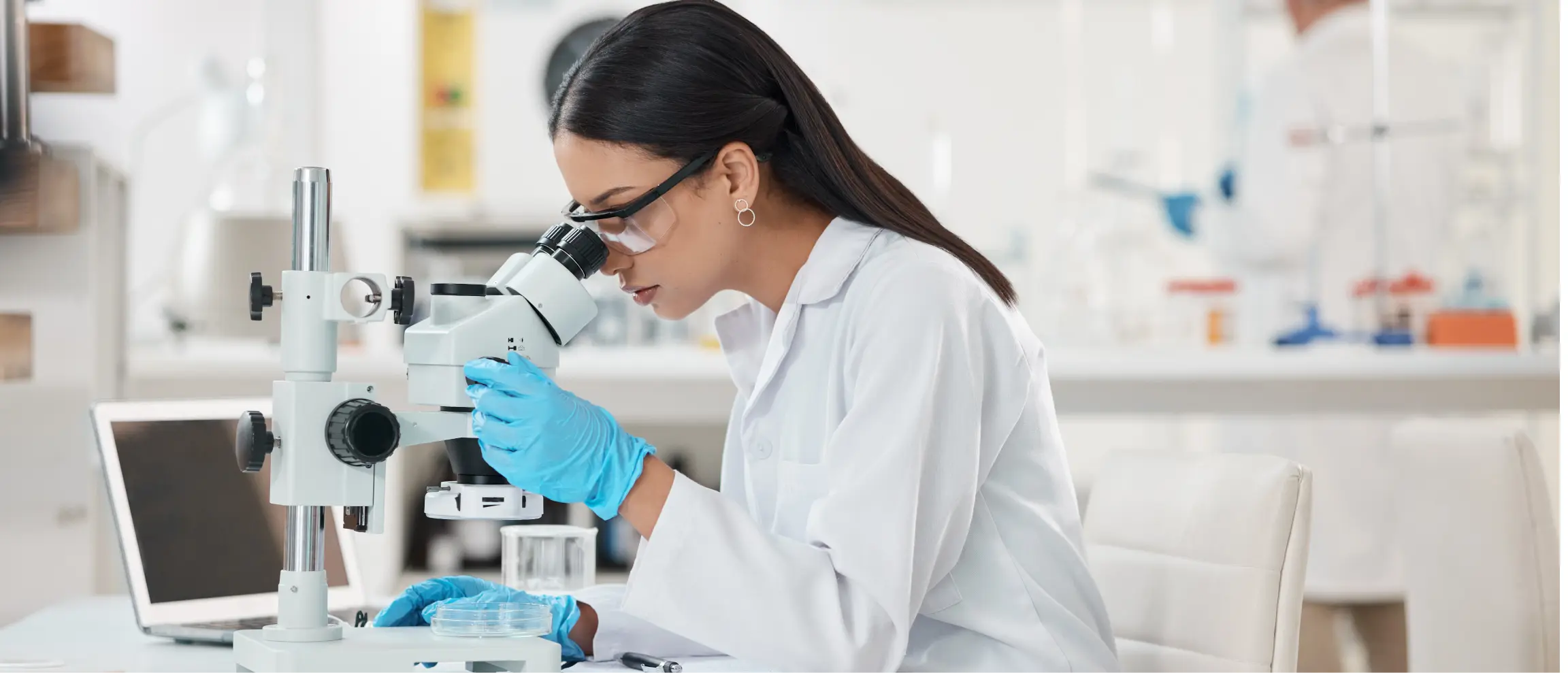Modern embryology labs are using the latest technologies to increase the chances of a successful pregnancy for couples dealing with infertility issues. As an embryology student, it is important to know about these advanced technologies to become a successful clinical embryologist who can clearly understand the infertility problem and treat your patients with the right ART methods. In this blog, let us discuss what is embryology, importance of embryology technologies for aspiring embryologists, advanced technologies used in embryology labs, and how modern embryology technologies are better for patients with infertility problems.
What is Embryology
Embryology simply means the study of how an embryo forms and develops into the fetal stage in the womb, and the birth of a fully developed baby throughout the stages. From embryogenesis to becoming a multicellular being, embryology explains the entire process. It gives a look into the evolutionary insight and reproductive knowledge that are necessary for aspiring embryologists to understand.
Importance of Embryology Technologies for Aspiring Embryologists
Accurate Prenatal Diagnosis
Advanced embryology technologies allow for early and precise diagnosis of any genetic abnormalities or issues in the chromosomes, which helps professionals to make the right decision and prevent any complex issues.
Increased Success Rates
Advanced embryology technologies allow for early and precise diagnosis of any genetic abnormalities or issues in the chromosomes, which helps professionals to make the right decision and prevent any complex issues.Modern embryology tools help in improving fertilization, implantation, and pregnancy outcomes in couples with infertility issues. With precise embryo handling and gamete selection, embryologists can increase the success rate of conception.
Embryo Development Process
Advanced technologies help in the detailed observation of embryos at every stage of the growth cycle. This allows embryologists to identify any issues early in the development stage and optimize the conditions for the embryo culture.
Increased Patient Safety
Advanced embryology technologies reduce manual errors, maintain sterility, and improve consistency in ART procedures, which can significantly reduce any risks during embryo handling and genetic testing, leading to improved patient safety.
Embryo Assessment & Selection
Technologies like AI and time-lapse imaging help embryologists analyze embryos beyond appearance. Aspiring embryologists are able to easily master techniques like embryo assessment & selection for informed decision making.
What Are the Advanced Technologies Used in Embryology Labs Today
Optimized Protocols
With AI analysis of patient health data, protocols like ovarian stimulation can be optimized to improve the quality and quantity of the eggs released and retrieved.
Time-Lapse Imaging (EmbryoScope)
Once the eggs are fertilized and form an embryo, EmbryoScope technology helps in analyzing the embryos at regular intervals, which reduces the need for manual monitoring and removal from controlled incubators.
AI-Assisted Embryo Selection
AI can help in analyzing large datasets to predict embryo viability with high accuracy. It improves and supports embryo selection with data-driven decision-making. For aspiring embryologists, AI is a much-needed skill that can help them in their embryology tasks, like the selection of the best embryos.
Automated Embryology Procedures
Automation in embryology reduces human error and improves consistency in tasks like sperm injection, embryo culture, or cryopreservation. These automated workflows are preparing embryologists for high-throughput modern labs, where speed, accuracy, and efficiency are needed for delivering quality results in embryology care.
Preimplantation Genetic Testing (PGT-A & PGT-M)
PGT for Aneuploidy & Monogenic, helps in filtering out the embryos and selecting the ones that have the correct number of chromosomes, and also screens them for any disorders (specific single-gene disorders) to reduce any risks during the embryo development.
Optimized Cryopreservation (Vitrification)
This latest technology in embryology allows for quick freezing of the embryos without any ice formation. Vitrification also provides a high survival rate for embryos when they are thawed for safe use in the future.
How Modern Embryology Technologies Are Better
| Differences | Traditional Embryology Technologies | Modern Embryology Technologies |
|---|---|---|
| Safety & Efficiency | Relies more on manual techniques, leading to higher patient risks and errors. | Automated techniques for consistent and safer results |
| Insights for Embryologists | Limited to basic microscopy images | Real-time and data-driven insights using AI and digital imaging |
| Culture Environment | Manual monitoring and less control over lab conditions | Advanced embryo culture environments for stable and optimal conditions |
| Embryo Assessment | Based mainly on the visible appearance of the embryo | AI-enhanced, time-lapse imaging for optimized assessment |
Key Takeaways
- New embryology technologies improve success rates, safety, and patient outcomes during fertility treatments.
- Tools like AI, EmbryoScope, and PGT are improving embryo selection, leading to better quality embryos.
- Modern embryology practices offer data-driven, consistent, and ethical approaches to ART procedures.
Frequently Asked Questions
Some of the Advanced technologies include time-lapse imaging (EmbryoScope), AI-assisted embryo selection, PGT, automated lab procedures, optimized culture environments, and vitrification.
Yes, AI is already being used to analyze embryo quality, predict implantation success, and standardize embryo grading.
It is a time-lapse incubator that is useful in monitoring embryo growth with regular imaging in a controlled setting.






